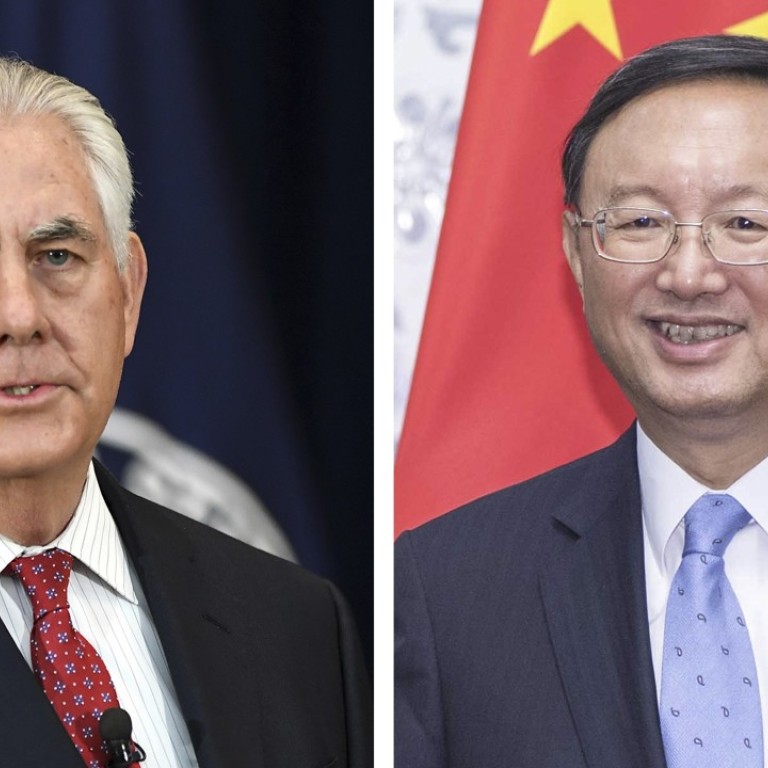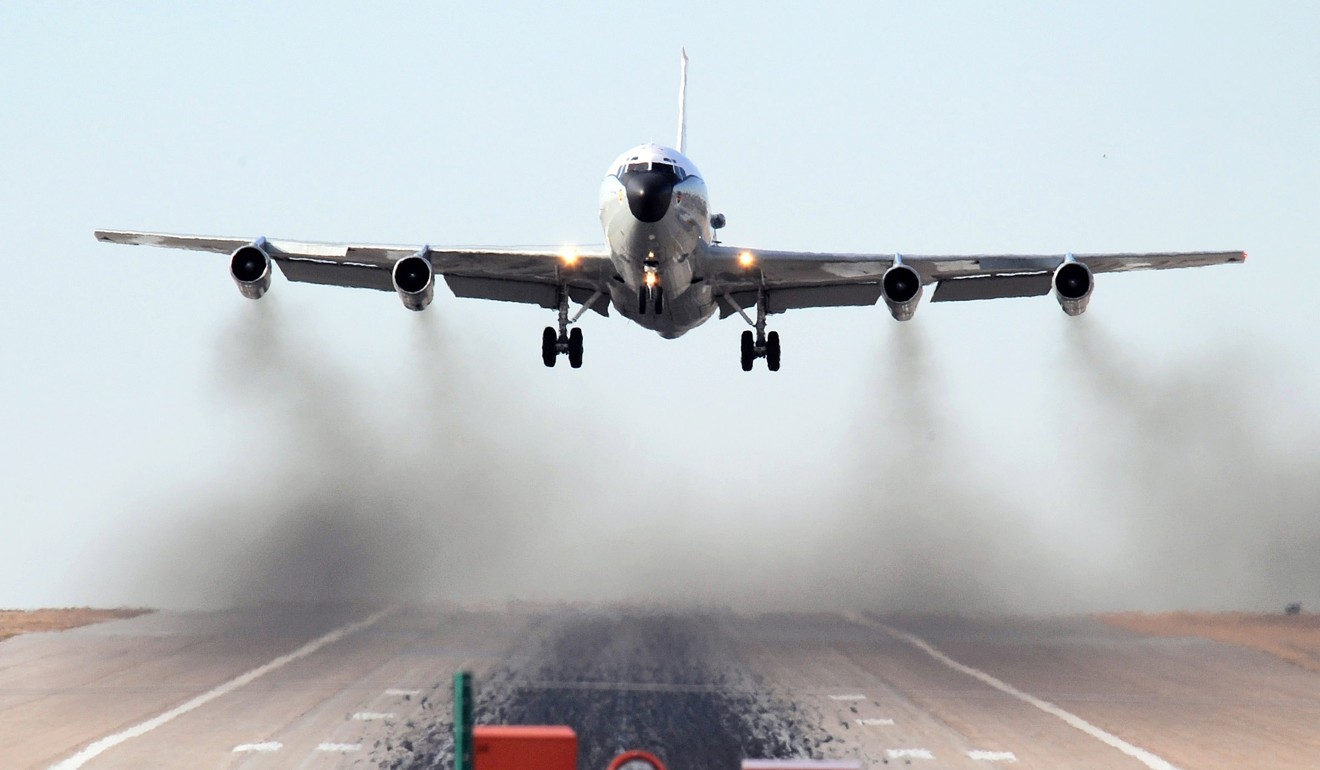
Top diplomats offer signs of Sino-US progress on handling North Korea
Undeterred by East China Sea intercept, Yang and Tillerson agree to closer cooperation between China and United States
China and the United States could be nearer to a consensus on handling North Korea, analysts say, with a commitment from the top diplomats of both countries to work closer together on international issues.
The commitment was made on Saturday in a phone call between State Councillor Yang Jiechi and US Secretary of State Rex Tillerson, and came as US and Chinese armed forces took aim at each other over an intercept by two Chinese jets of a US aircraft over the northern East China Sea.
Yang said China and the US should “step up communication and coordination on major international and regional issues”, Xinhua reported, adding that Beijing would work closely with Washington to ensure the success of the upcoming China-US diplomatic and security dialogue.
Xinhua singled out “North Korea” as one of the international issues discussed in the call, but gave no details.
Meanwhile, defence ministry spokesman Wu Qian rejected US Air Force claims that two Chinese Su-30 fighter jets acted unprofessionally in intercepting a US nuclear ‘sniffer’ aircraft on a “routine mission” in international airspace on Wednesday.
“The allegations from the US side are inconsistent with the facts,” Wu said, adding the US WC-135 Constant Phoenix was carrying out reconnaissance in “the Chinese Yellow Sea”. “Chinese aircraft acted to identify and investigate in accordance with the law. The operation was professional and safe,” Wu said.
Japanese news outlet Nikkei reported the WC-135 was deployed by the Pentagon to the Kadena Air Base in Okinawa to monitor nuclear tests by North Korea.
Ren Xiao, from Fudan University’s Institute of International Studies, said the intercept was a “minor friction” and unlikely to affect cooperation between the two countries on North Korea unless such incidents became more serious and frequent.

Zhang Tuosheng, from the China Foundation for International and Strategic Studies, said one of the key conflicts to be resolved between China and the United States was whether to use force if North Korea insisted on pressing ahead with its nuclear programme.
“To build consensus and stop further nuclear moves by North Korea, China needs to step up its efforts, both as a major player in the international community and as a neighbour state,” Zhang said. “But the US needs to make concessions as well.”
US Defence Secretary Jim Mattis warned on Friday that the US should work with regional powers to pursue non-military means to address North Korea’s nuclear ambitions because the alternative would be “tragic on an unbelievable scale”.
Mattis said Pyongyang’s test of a new intermediate-range ballistic missile last week as “provocative”, but he also stressed the need for a peaceful resolution by working through the United Nations with countries including China, Pyongyang’s traditional ally and benefactor.
Additional reporting by Associated Press

